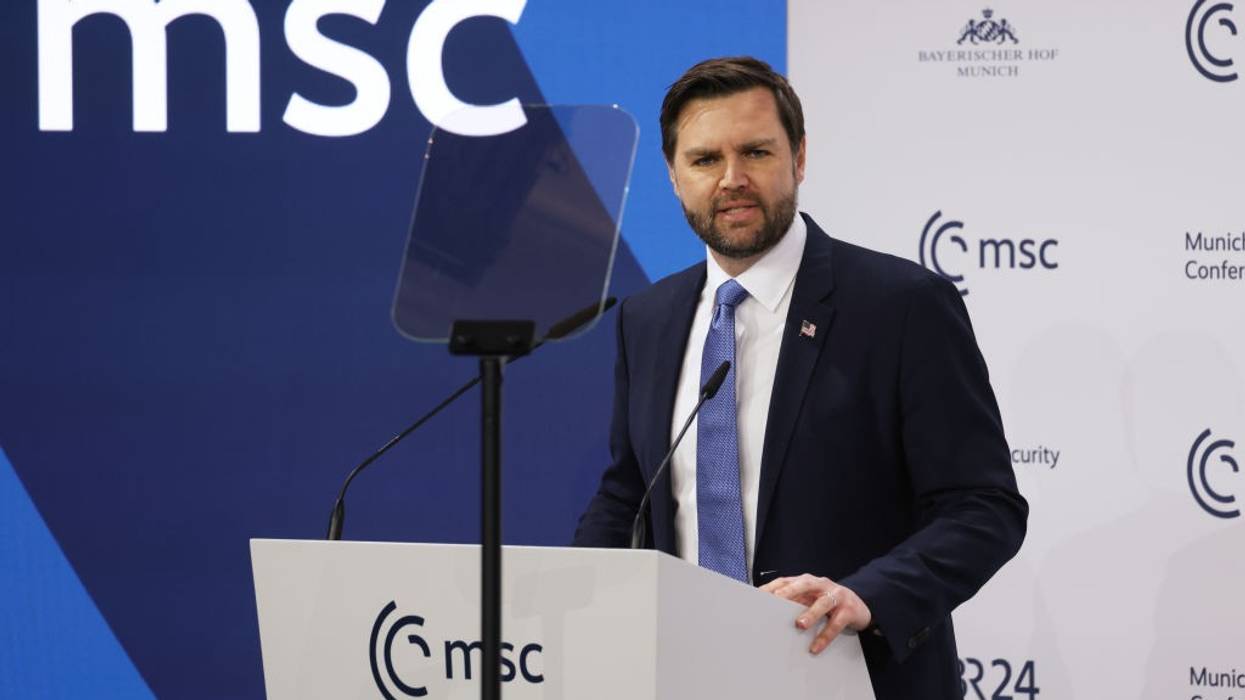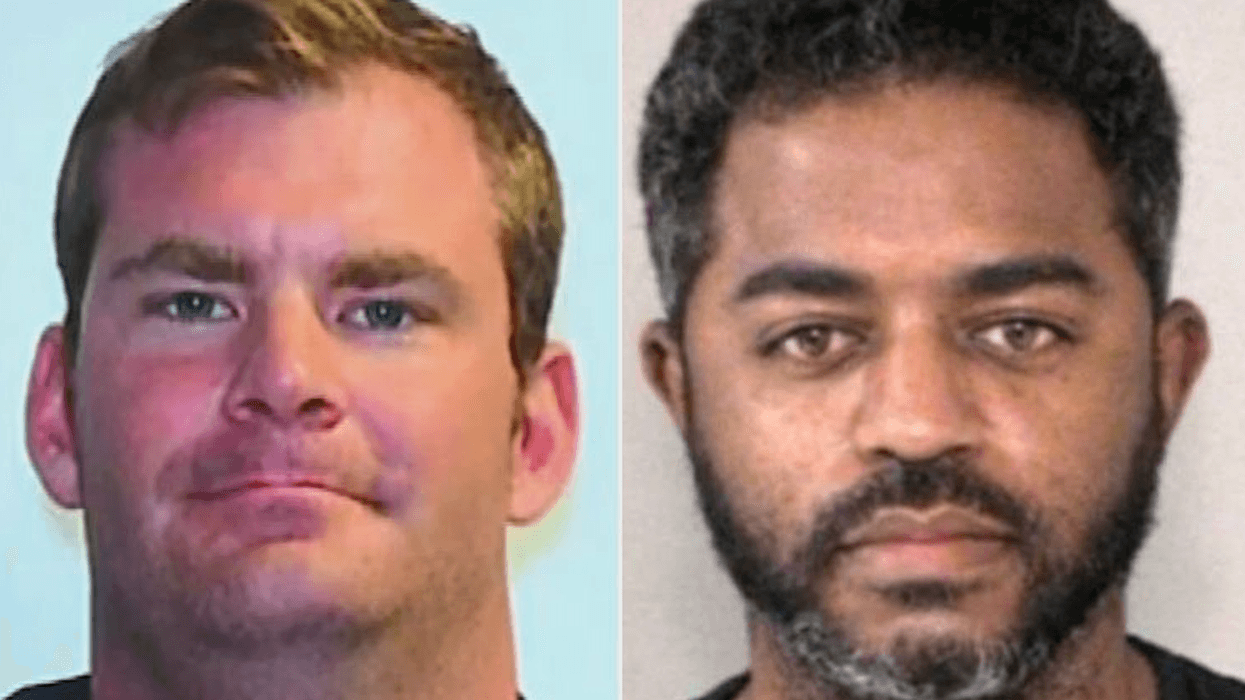What ICE's Extremism in Minnesota Reveals
We have arrived at a critical juncture in the history of this country and the world beyond, which is being buffeted by reactionary forces.
In principle, extremists primarily seek to harm people who do not share their race, religion, or nationality. In practice, they often harm the very people they claim to serve and protect, people with whom they share some supposedly sacred demographic.
Consider Minnesota, currently under siege by anti-immigrant extremists in the employ of the federal government, with ICE and CBP at the forefront. Immigrants have indisputably suffered the most from this program of harm, but we have seen a recent turn toward harming non-immigrants.
This change was starkly illustrated with the January 7 slaying of Renee Good by anti-immigration forces, which was followed by an escalating crackdown on protesters, observers, and people simply trying to go about their lives. On Saturday, January 24, ICE killed another Minnesotan, Alex Pretti, a registered nurse who worked to help veterans, who put his body between immigration officials and other citizens targeted for violence, as clearly seen in multiple videos of the slaying. Federal government agents are shown shooting Pretti in the back while he was pinned to the ground, immobilized, and disarmed.
It goes without saying that citizens and immigrants alike should be equally entitled to live with dignity and free of state violence, and it should be emphasized that citizens are not “more important” victims than immigrants. However, these recent attacks highlight an important dynamic and key vulnerability in any extremist movement.
Through their courage and solidarity, Minnesotans from all walks of life are asserting an authentic American identity based on inclusive ideals in the face of adversity and escalating violence.
To make sense of this, we must first discuss how and why extremists classify people according to their social identity. The broadest categories of identity are in-groups and out-groups. An in-group is the group to which one belongs, and an out-group is anyone excluded from that in-group. As defined in my MIT Press book on the subject, extremism is the belief that an in-group’s success or survival can never be separated from the need for hostile action against an out-group.
Enacting harm on out-groups is risky, difficult, and costly, so extremists almost always seek to make the task easier by enlisting the entire in-group. To understand how this works, it’s useful to break the in-group down into subcategories.
- The extremist in-group is a movement based on a demand to harm out-groups. Examples include Al-Qaeda and the Ku Klux Klan.
- The eligible in-group is the category of people an extremist movement claims to represent and from which it seeks support. For Al-Qaeda, the eligible in-group is Sunni Muslims. For the KKK, the eligible in-group is white people.
In the extremist context, eligibility refers to the traits that make someone eligible for in-group membership. For instance, according to the KKK, light-colored skin is the minimum requirement for eligibility in the category of “white people.” But eligibility implies a counterpart: ineligibility. To continue with the same example, the most obviously ineligible people are members of an out-group, such as those with dark-colored skin.
But eligible in-groups often rebuke the extremists who claim to represent them, throwing the extremist movement’s legitimacy into crisis. If the extremist movement can’t persuade the eligible in-group to enact harm on out-groups, it may try to change the composition of the in-group by declaring that dissenters have forfeited the right to their in-group identity.
Extremist movements are at their most dangerous during times of uncertainty or upheaval.
The ineligible in-group thus consists of people who possess the canonical qualifications for membership but whose actions put them at risk of expulsion. In white supremacist extremism, for example, the ineligible in-group usually includes white people who have sexual relations with non-white people and are therefore subjected to even harsher treatment than the out-group. For instance, the infamous “Day of the Rope” massacre described in the neo-Nazi novel “The Turner Diaries” refers to the gruesome public execution of white “race traitors,” while racial out-group members are killed without fanfare “off camera.”
Extremist movements are at their most dangerous during times of uncertainty or upheaval, when group boundaries can be suddenly redrawn, with control of the in-group hanging in the balance. An extremist movement that hasn’t consolidated control of the in-group often declares war against “ineligible” dissenters. We saw this play out in the mid-2010s, when the Islamic State organization (IS) attempted to consolidate its control of a large swath of Iraq and Syria. Sunni Muslims who opposed IS control were massacred mercilessly under the principle “nine bullets for the traitors, one for the crusader.”
Disturbingly, we’re seeing the early stages of this dynamic right now in Minnesota, although we can hope it will not evolve into atrocities of the same scale. Anti-immigrant extremists in the U.S. federal government have increasingly menaced and used violence against dissenters and observers who are U.S. citizens — members of the in-group that the extremists claim to serve and protect. In addition to the Good and Pretti shootings, federal agents have roughed up and detained observers without provocation, and have repeatedly used pepper spray on peaceful gatherings, sometimes at close range and in violation of safe operation guidelines. In one horrific incident, a car full of children was exposed to tear gas while their parents tried to drive them home from a school event. The extremists continue to escalate their program of harm against the ineligible in-group, with no end in sight.
One of the most important ways extremists seek control of the eligible in-group is by exploiting the socially constructed nature of reality. The theory of social construction is popularly understood as “consensus reality,” and its premise is simple enough: The world is too big and complicated for people to experience in its entirety. We can only understand the world through consultation with trusted others, who tell us what happens out of our sight and help us determine right from wrong. Put simply, we can only understand the world in dialogue with others.
In-groups and out-groups come into play during social construction. We tend to trust people whose experience of life is most like our own, typically those with whom we share some concept of identity — anything from race and religion to neighborhood and nationality. When this normal instinct congeals into an excessive attachment to a specific identity and a mandate to harm people who don’t share that identity, it becomes extremism. Almost everything done by authoritarians and fascists (for whom extremism is an essential tool) can be understood as an effort to control the social construction of reality by amplifying selected in-group views and entirely suppressing the views of out-groups through methods that range from discrimination to segregation to genocide.
To this end, the current generation of anti-immigration extremists is navigating turbulent waters, in part because its coalition is complex and not exclusively focused on immigration writ large. The alliance includes often-overlapping categories of racists, antisemites, misogynists, homophobes, and transphobes, and the priorities of its factions are not always aligned. This increasingly fractious coalition is ill-equipped to face down an increasingly cohesive coalition of Americans united by anger that our nation’s peace, progress, and safety have been intentionally undermined.
Minnesotans are courageously demonstrating this unity, mobilizing to defend neighbors whose race or national origin puts them at risk. In the process, they are communicating a strong in-group consensus to their persecutors by turning out in large numbers and loudly asserting their condemnation through shouting, blowing whistles, giving sermons, honking horns, posting signs, and painting graffiti. These expressions of in-group disapproval can help defuse the psychological drivers of violence and undermine competing narratives and political power structures that seek to validate an extremist orientation and the repressive tactics that it justifies.
In a globalized media environment like America’s, the in-group is never just local. People around the country can support Minnesotans using many of the same tactics — by speaking out and showing up in large numbers, both online and offline, as so many have already done. In conjunction — and perhaps even more importantly — we can fight the tide of hate by demanding that institutions, including politicians and the media, recognize the severity of the current crisis in American democracy and respond proportionately.
Those institutions are critically important precisely because America’s consensus reality is, again, too big and too diverse to observe directly. You could spend your entire life talking to Americans and still understand only a tiny fragment of the American experience. For in-groups larger than a neighborhood, the consensus is therefore described and defined by institutions and individuals in journalism, politics, and the arts. These portraits of the in-group consensus are distributed through traditional and new media platforms, and none of them are neutral.
The winner of this struggle will define what values the American in-group stands for, perhaps for generations to come.
It is no accident that the purveyors of hate have moved to take control of major news and social media platforms through a combination of money and pressure tactics, and to discredit and defund those they can’t control. In some cases, these platforms have been bought outright and subjected to blunt and obvious manipulation. In other cases, reporters have succumbed to flawed journalistic conventions, such as providing “both sides” of every controversy with equal weight, even when one side is obviously lying or otherwise detached from reality. This practice misleads the public by inflating the extremists’ appearance of strength and credibility under the guise of “balance.” (Imagine news programs inviting a flat-earth believer to weigh in whenever the subject of the globe comes up. That’s what happens now when the topic is immigration or vaccines.)
The in-group consensus can never be determined with perfect objectivity. The tools for measuring it, such as polls, are complex and subject to bias. Even if polls were perfectly composed and executed, they would still be open to wildly divergent interpretations. Look through the archives and ask which presidents won “with a mandate” over the last 100 years. Then compare their vote counts.
In other words, the consensus is won through perception. And when an authority figure, an institution, or an algorithm creates the perception that extremists are winning, it can become a self-fulfilling prophecy. People have a well-documented tendency to justify the legitimacy of the status quo as they perceive it.
Although we can reject those who would assign us to an out-group or an ineligible in-group, we cannot assume that our voices will be acknowledged. If America is to climb out of this era of rage and hate, those who stand against the extremist wave cannot just show up and expect to be counted. They must loudly demand their voices be acknowledged in every setting and institution of civic life, from business to politics, from news to the creative arts. With every death at the hands of anti-immigrant extremists, this assertion becomes more necessary and potentially more powerful.
Even so, a winning narrative or communication strategy may not be enough to defeat those who seek to control the in-group consensus using state violence. If the extremists can’t persuade the ineligible in-group to surrender, they will seek to intimidate and perhaps kill its members, an escalation that is now well underway. That is why the eligible in-group must defend its relevance with all available methods, including the courts, the ballot box, mutual aid, and more. Justice must be pursued, regardless of whether accused murderers wear a badge. And all of these in-group actions will build and reinforce support and mobilization networks that will be sorely needed before this is over.
We’ve arrived at a critical juncture in the history of this country and the world beyond, which is being buffeted by the same reactionary forces. The winner of this struggle will define what values the American in-group stands for, perhaps for generations to come. Through their courage and solidarity, Minnesotans from all walks of life are asserting an authentic American identity based on inclusive ideals in the face of adversity and escalating violence. For those values to prevail, we must stand together in their defense.
This piece was originally published by The MIT Press Reader and appears here at Common Dreams with permission.


